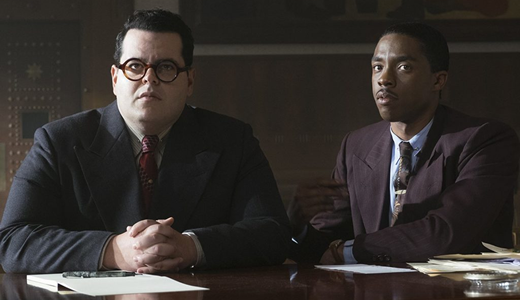As I mentioned yesterday, Boo 2! A Madea Halloween was the No. 1 movie in the country this weekend. Its “family friendly” PG-13 rating certainly helped raise its box-office tally, even though I didn’t find the film particularly family friendly. But turns out, the MPAA originally slapped the movie with an R rating before director/star Tyler Perry went back in and made some judicious cuts.
The problem? Language, Perry told CinemaBlend—particularly that of Joe, Madea’s crass, perpetually stoned brother. Said Perry:
Out of control. His language was just really really rough and in PG you could only really say… they only give you so many curse words if you are going to stay PG-13. That was it, just language.
It’s nice that the MPAA wants to protect our ears from audible vulgarity … or, at least what it deems too much of it. Truth is, Boo 2! was plenty vulgar even with the cuts. Sure, it lost a few s-words, but it still included three of ’em. It changed some “d–ns” to “darns,” but the MPAA still let about 50 of them go.
Listen, the MPAA has a really difficult job. I don’t envy its members. Still, Boo 2! illustrates the randomness of the ratings system. Kids can be exposed to three s-words, but five is beyond the pale? We can deal with 50 “d–ns,” but 55 is just too much?
But the MPAA’s language constraints, just like the rest of their guidelines, are pretty, um, flexible, and getting more so all the time.
For years, it seemed like any PG-13 movie could never have more than two f-words. But the inspiring PG-13 film Marshall had three. Boo 2! had to cull its s-word count down to three to garner a PG-13 rating, Perry suggests. Meanwhile, Only the Brave—also PG-13—had “40 or so,” according to our review, and a pair of f-words to boot.
Obviously, the context of these movies plays a big role in the ratings. Marshall serves as an inspiring biopic that many would want their kids to see, language or no. Only the Brave gives us a bevy of hotshot firefighters doing an incredibly dangerous job. Again, I could see parents taking their kids to the flick to give them a glimpse at some real-life heroes at work.
But plenty of parents will steer well clear of those movies, too, and mostly because of the language.
I applaud that sort of discernment, but the fact they’d have to forgo a movie like Marshall is, frankly, kind of a shame. Marshall has a lot else going for it, and of all the content caveats we offer in our reviews, language seems to me to be the most unnecessary element that filmmakers include.
You could argue that Hacksaw Ridge wouldn’t have been as effective without the blood and violence. You can’t unveil the devastating toll of alcoholism without the liquor. But you can tell an incredibly effective story—and any sort of story you want to tell, really—without the language. Looking back at any Hitchcock work will illustrate that point just fine. I doubt very many folks—religious or no—have walked out of a movie and thought to themselves, “You know what? That movie was OK, but it sure could’ve used more cussing.”
Sure, I’m sure some would argue that bad language adds to the movie’s realism: “Firefighters cuss,” they’d say. “Only the Brave simply shows that reality.” And that, of course, is correct … to a point. But if rigorous authenticity is the argument, I suspect that the language from some of these firefighters would’ve barreled past a PG-13 rating without a pause and landed firmly in R territory. The filmmakers were still censoring the film … but just enough to skate through with a PG-13 rating, but not enough to open the movie’s doors to many families. Again, a shame.
The other argument to include harsh language in a film is that it adds impact to a given moment—a roundhouse right to a snippet of dialogue. Arguably, Marshall employs two of its three f-words in just such a moment, communicating Thurgood Marshall’s hurt and anger when a co-worker insults his motives.
And yet, because foul language is so pervasive, both in our movies and in our culture, the supposed power of these words is itself undercut. As I’ve written before, profanity is designed to shock: When it becomes so ubiquitous in the culture, it ceases to be shocking. It loses its reason for being. Given the pervasiveness of bad language today, we may soon have to create new curse words that will take the forboten place of the old.
Language is a funny thing, and admittedly, the lines we draw to guide its usage can feel, indeed, quite arbitrary. But for those of us who care about language—and want to avoid exposing our families’ ears to too much of the foul stuff—we have to be extra rigorous these days.






Recent Comments